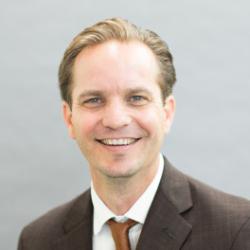A video surreptitiously filmed during one of Mitt Romney’s private fundraisers was leaked and captured the Republican presidential nominee talking to donors last April in a Florida home (watch below) during a very candid moment.
While Romney states the facts and opinions as he sees them regarding the prevalent public welfare culture in America, he quotes figures that will surely stir animosity from within the Obama administration and his loyal Democratic voters.
Here’s a summary of what Mitt Romney told his campaign donors:
There are 47 percent of the people who will vote for the president no matter what…There are 47 percent who are with him, who are dependent upon government, who believe that they are victims, who believe the government has a responsibility to care for them, who believe that they are entitled to health care, to food, to housing, to you name it. ..They will vote for this president no matter what… And so my job is not to worry about those people. I will never convince them [that] they should take personal responsibility and care for their own lives. What I have to do is convince the five to ten percent in the center, that are independents, that are thoughtful, the look at voting one way or the other…
Mitt Romney explained himself to the liberal press after the leaked video:
This is, of course, something I talk about a good deal in rallies and speeches and so forth, which is the president and I have very different approaches to the future ofAmerica and what it takes to ignite our economy and put people back to work,” Romney said. “The president believes in what I’ve described as a government-centered society where government plays and larger and larger role, provides for more and more of the needs of individuals and I happen to believe instead in a free enterprise, free individual society where people pursuing their dreams are able to employ one another, build enterprises, build the strongest economy in the world.
Romney’s statement on welfare dependency infers some form of psychological addiction – what one might call a case of “Obamania” for an ever-increasing national dependency on and political support of entitlement programs, like nationalized healthcare. (Read American Enterprise Institute scholar Nicholas Eberstadt’s new essay “A Nation of Takers.”)
The public welfare entitlement culture to be sure has become entrenched in voters expectations of government, as we find clearly stated in Justin Fox’s recent Harvard Business Review article:
In 2011, according to the Census Bureau, 150 million of the 305 million people in the U.S. lived in a household that received benefits (Medicaid, Social Security, food stamps, and Medicare were the Big Four, in order of number of recipients) from the government. These numbers have risen dramatically since the 1960s… The federal government now spends more on Social Security, Medicare, Medicaid, and other entitlements than on all its other activities combined.
This analogy of addiction may be true and more than a little offensive to liberal democrats, however the real question is whether all of the 47 percent of Obama’s supporters are really a lost cause and whether Romney can change their opinions about the extent of what government should and can do.
Setting facts and figures aside, what it all boils down to is that the 47 percent of Obama’s votes belong to one core value of another belief system – that the state and its legal institutions should first and foremost be the solution to solve our problems, and not served firstly by a collection of self-giving, self-ordering private individuals in their own towns and local communities. Rather they think welfare is best served by bureaucrats managing and executing centralized government programs not God-loving and caring citizens.
Finally, I cannot help but recall John Paul II who articulated this cultural divide some 21 years ago in his 1991 social encyclical, Centesimus Annus (see CA. 48) when he explained the Church’s teaching on subsidiarity:
In recent years the range of such intervention has vastly expanded, to the point of creating a new type of State, the so-called “Welfare State”… Malfunctions and defects in the Social Assistance State are the result of an inadequate understanding of the tasks proper to the State. Here again the principle of subsidiarity must be respected: a community of a higher order should not interfere in the internal life of a community of a lower order… By intervening directly and depriving society of its responsibility, the Social Assistance State leads to a loss of human energies and an inordinate increase of public agencies, which are dominated more by bureaucratic ways of thinking than by concern for serving their clients, and which are accompanied by an enormous increase in spending.

